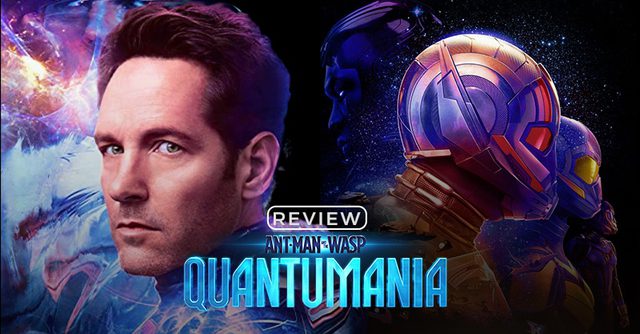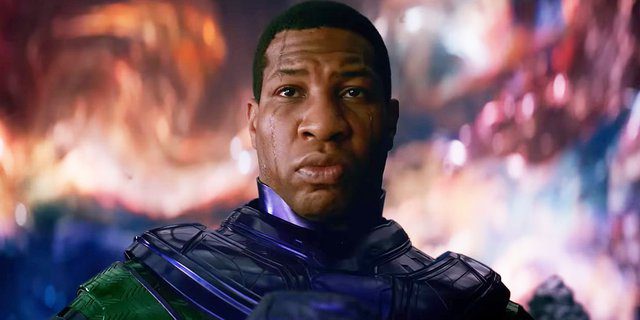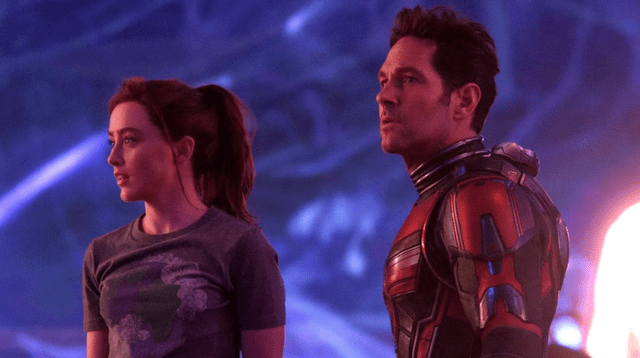Ant-Man and the Wasp: Quantumania (Ant-Man và Chiến Binh Ong: Thế Giới Lượng Tử) is the opening film of Phase 5 of the Marvel Cinematic Universe (MCU). It also serves as the concluding chapter of a trilogy centered around the character Scott Lang/Ant-Man, played by Paul Rudd. The significance of the film is heightened by the introduction of a new major villain, Kang the Conqueror (Jonathan Majors), who appears for the first time on the big screen, replacing Thanos as the formidable foe.
Officially released worldwide on February 18, Quantumania has led to a polarized reception among critics and audiences alike. On the movie rating site Rotten Tomatoes, Marvel Studios’ latest film only garnered 47% positive feedback from 303 reviews, with a modest score of 5.6/10. In contrast, the audience score, based on over 5,000 ratings, stands at an impressive 4.2/5, representing 84% positive responses.
The dual reception reflects the MCU’s ongoing evolution, introducing a colorful superhero film that still falls short of the quality standards typical of a blockbuster cinematic experience. Overall, Quantumania is a complex, visually engaging work that sometimes feels like a derivative of other iconic franchises, drawing parallels to the narrative of a war against an overwhelming enemy.
A Two-Hour Journey Through a Complex Universe
In Ant-Man and the Wasp: Quantumania, the quantum realm is explored after the serene years following the battle against Thanos. Following the events of Infinity War and Endgame, Scott Lang/Ant-Man (Paul Rudd) finds himself navigating parenthood while his daughter Cassie (Kathryn Newton) and Hank Pym (Michael Douglas) delve into experiments related to the quantum realm.
Things take a turn when Cassie’s experiment unexpectedly opens a portal to the quantum realm, leading the family into a strange world inhabited by various creatures and under the rule of Kang, who is on a mission that could threaten the entire multiverse.
The film introduces a fresh perspective on the character dynamics within the Lang family, emphasizing their relationships amidst the chaos of their new reality. However, the storyline often feels cluttered, as it attempts to juggle numerous plot points and character arcs, leaving viewers wanting more depth in character development, particularly for Janet Van Dyne (Michelle Pfeiffer), who has a complicated backstory with Kang.
Viewing Ant-Man and the Wasp: Quantumania, it’s difficult to find moments that evoke genuine emotional responses, leaving audiences feeling somewhat detached. Even the introduction of Kang the Conqueror, a character set to be a major player in the MCU, fails to elicit a strong reaction, primarily due to the film’s chaotic narrative structure.
Who Should Watch Ant-Man?
Hollywood blockbusters often follow a trilogy format, and in the MCU’s history, the third installment typically aims to wrap up the hero’s journey. This pattern is evident in films like Iron Man 3 and Captain America: Civil War, which successfully integrated character arcs while delivering a satisfying conclusion. However, Quantumania struggles with this, as it introduces new characters and conflicts that dilute the focus on Ant-Man himself.
Scott Lang is portrayed as the lead in Quantumania, but he often feels overshadowed by his supporting cast, including Cassie, Janet, and Kang. The film presents Cassie’s potential as a future superhero, hinting at her involvement in the Young Avengers, but at the cost of diluting Scott’s role as the protagonist.
Ultimately, Quantumania attempts to balance the introduction of new characters and plotlines while still honoring the legacy of Ant-Man, but the execution leaves much to be desired. The film’s pacing and frequent shifts in focus detract from character development, particularly for the titular hero, leaving audiences yearning for a more cohesive and engaging narrative.
As the MCU continues to evolve, the challenge remains for filmmakers to deliver compelling stories that resonate with both long-time fans and new viewers alike. Ant-Man and the Wasp: Quantumania serves as a reminder of the complexities involved in maintaining a rich, interconnected universe while still providing satisfying standalone narratives.
























